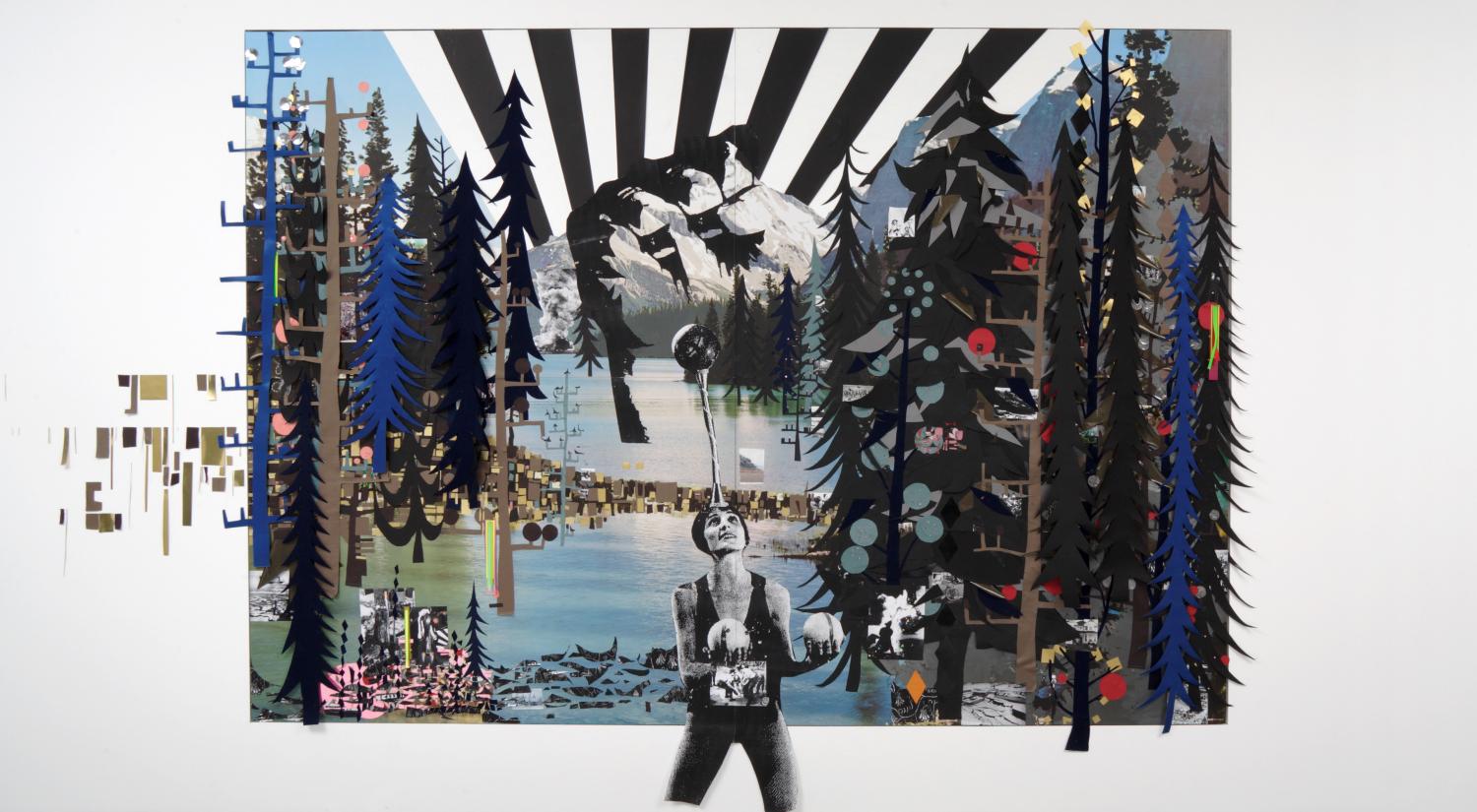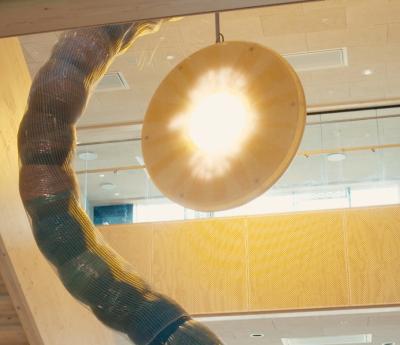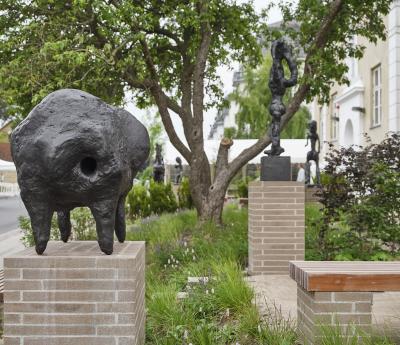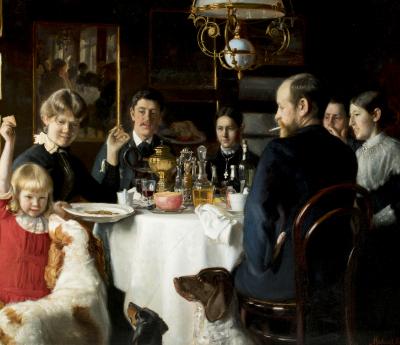If Balance Stops and Asks Why, Balance Will Die is a monumental collage created early in Kirstine Roepstorff’s artistic practice. The collage shows a female juggler against a mountainous landscape with an idyllic woodland lake. She is surrounded by coniferous trees made in paper and textile. Above the juggler’s head is a clenched fist, an image widely associated with groups that challenge the status quo by standing up to oppressive systems and regimes.
A state of pure being
With this collage Roepstorff raises the question of how balance is achieved if nothing is stable or constant? The juggler balances between nature and humanity, idyll and chaos, peace and war, resistance and surrender, man and woman. In Roepstorff’s collage the liquid medium of water symbolizes feminine aspects, while the trees shooting up from the ground symbolize masculine ones. In the collage, the two domains are in constant motion, reflecting the allegorical image of the juggler who is constantly striving for balance, juggling the many different balls. This is a state of pure being, a situation that does not allow for questions.
The deconstruction of stories
The collage is a recurring format in Kirstine Roepstorff’s work. She tears out elements from existing pictures to form new images and realities, seen from her own vantage point. To Roepstorff, reality is a construction in constant transformation.
Her collages incorporate images from news media, juxtaposed to form new combinations that visualize a critical view of the stories and existing power relations. The collage challenges reality as we know it by tearing it up, creating new combinations and questioning the relationship between image and background.
Edicius and Lilith
If Balance Stops and Asks Why, Balance Will Die is included in Trapholt’s exhibition ‘Edicius and Lilith’, open until 25 November 2018, which shows works by Kirstine Roepstorff dating from 2005 until today.
The exhibition addresses the concept of male and female genders through the Biblical character of Lilith and Edicius, a character of Roepstorff’s own creation. Lilith represents primordial femininity, while Eidicius personifies a modern, sensitive masculinity. Spelled backwards, Edicius reads ‘suicide’. Traditional masculinity needs to die for a new version of masculinity to rise in its place.
About Kirstine Roepstorff
Kirstine Roepstorff (b. 1972) graduated from the Royal Danish Academy of Fine Arts and has exhibited around the world. Most recently she held a large solo exhibition at Kunsthal Charlottenborg in Copenhagen in the summer of 2018, and prior to that she represented Denmark at the Venice Biennale in 2017. Roepstorff’s works are included in the collections of MoMA in New York, the Saatchi Gallery in London and SMK, the National Gallery of Denmark.



